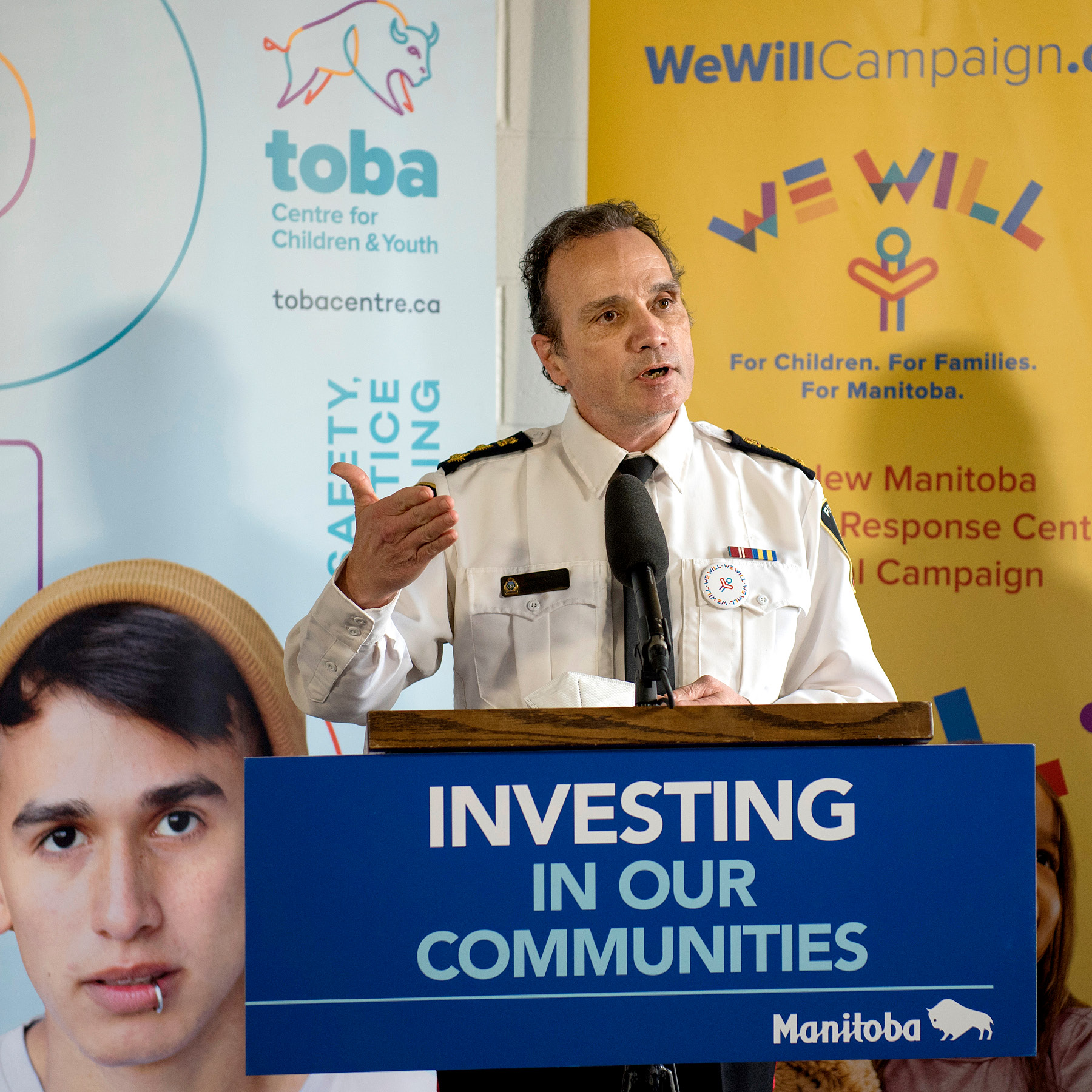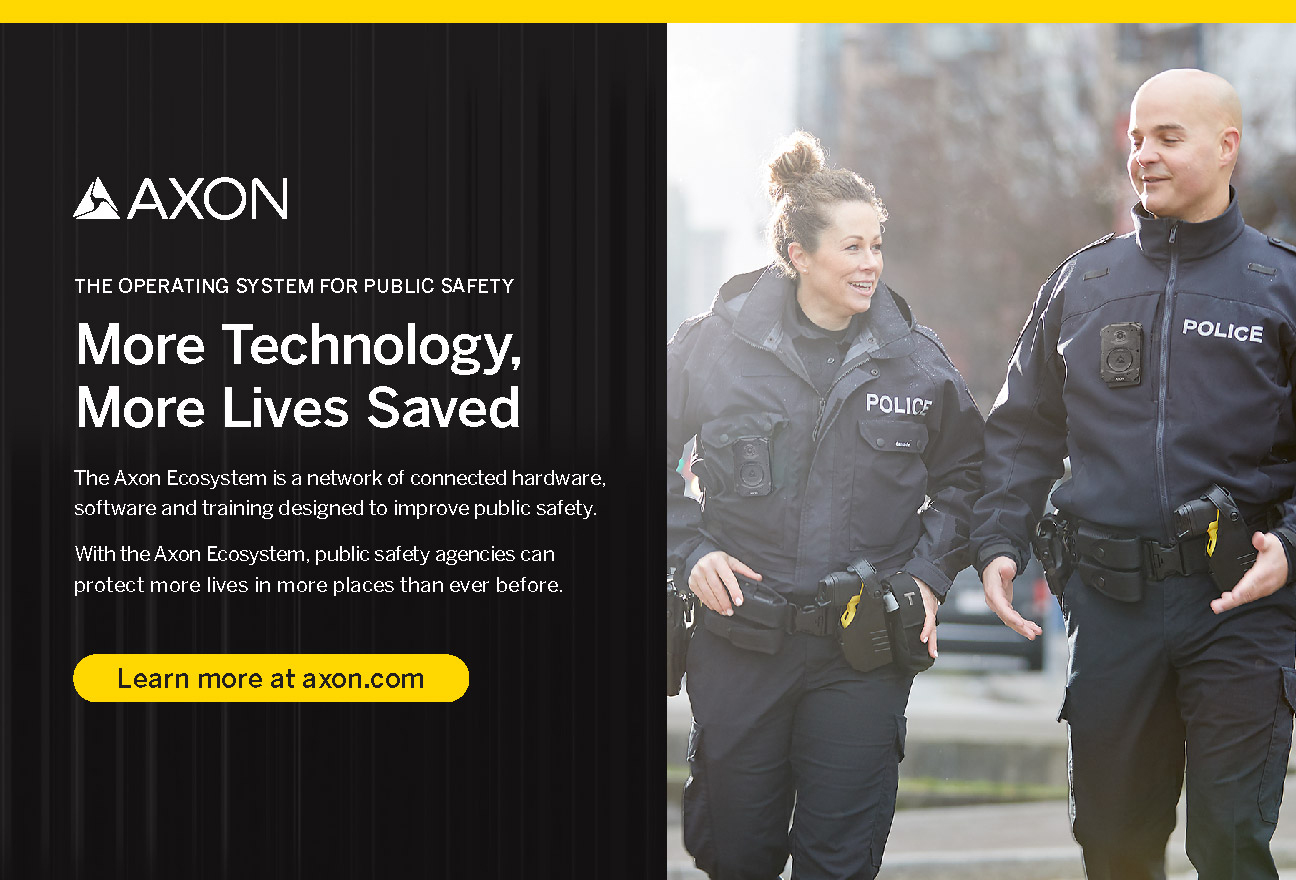Good cop: Danny Smyth
Winnipeg Police Chief Danny Smyth reveals the transformative changes that he’s witnessed over his 40 years in law enforcement, and believes wellness should be at the heart of police leadership.
Winnipeg Police Chief Danny Smyth describes his route to becoming a law enforcement officer as unique. It’s also fair to say that fate played a central role in his career choice while he was still a baby.
"I was adopted by this young policeman and his wife back in the 60s," he tells The CEO Magazine. "And thanks to my folks, I was one of the first in my generation to get an opportunity to go to university."

"Any policing leader who doesn’t prioritize wellness won’t be successful."
But despite his father’s occupation, there was a major reason why joining the police force wasn’t on Smyth’s radar.
"They had these antiquated height and weight restrictions back in the 80s, and as I was only 5 foot 7 inches [173 centimeters] tall and 72.5 kilograms, I wouldn’t have qualified," he remembers. "In fact, it precluded a lot of people from becoming cops.
"So it was one of the biggest changes to policing when they did away with the rule after somebody challenged it on human rights grounds. It became about ability, not stature. I would’ve been one of the shorter men who started in the profession, and it also opened the door for a lot of women and more diversity within the ranks."
A Privilege to Serve
Smyth has been Winnipeg’s Police Chief since 2016 and is retiring from the force in September. His time in office will be remembered for huge advances in technology, an increased focus on diversity and wellbeing, and his efforts to build stronger ties with the Indigenous population, particularly with regard to protecting vulnerable women and girls.
"It has been a real privilege to do this, but at times it’s a heavy burden, you know. So I think for a little while, I’ll just be catching my breath," he told CBC News while announcing his departure after four decades in uniform.
He’s particularly proud of how his force has pioneered new crime-fighting techniques in a city that’s had one of the country’s highest crime rates for decades.
"Our ability to collect, harness, analyze and disseminate data and information has been transformative. From the rudimentary two-way radios of the 1980s to today’s sophisticated smartphones and apps, digitalization has revolutionized police work," he says.
"We can make detailed information readily available to officers in the field to help them do their job much more effectively."
One of the most significant technological integrations has been the use of drones. "In my time as Chief, we’ve seen drones really come into play for looking for people, processing evidence and getting situational awareness before action is taken."
Harnessing Technology
He invested in drones after witnessing their capabilities at a trade show. Such events have been an effective way to engage with the community and gain knowledge of innovative products and trends.
"We put on a lot of different conferences, and often there’s a trade show component to them that allows us to see any new equipment out there," Smyth says.
Among the force’s most important corporate partners has been Axon Enterprises, a leading manufacturer of state-of-the-art body cameras, tasers and digital police management systems.
"When Axon first came on board, they were all about electronic weapons and stun guns. But they’ve expanded to do so many things and given us the ability to really change the way we train, so it’s more realistic but in a virtual setting," he explains.
"It has been a real privilege to do this, but at times it’s a heavy burden."
"There have been so many innovations that Axon envisioned and ran with, and now they’re a leader in some of those spaces because they’ve developed that foundation of a digital evidence platform," Smyth adds.
Having the best equipment to hand has also helped the mental health of his officers. Smyth says taking a holistic approach to the wellness of the department reflects a broader understanding of the challenges faced by police officers and the need for comprehensive support systems.
"Some of the social justice movements and the close scrutiny of policing put a lot of stress on our people. Any policing leader who doesn’t prioritize wellness won’t be successful. It’s now very different to when I started," he notes.
"Back then, we were always thought to be these silent, stoic types just taught to endure it. That’s no longer the case – we have behavioral health units, full-time psychologists, wellness officers and services to help navigate what can be a real stressful job."
When he hands in his badge after such a distinguished career, it’s no wonder that he admits he’ll be making time for a little self-care.
